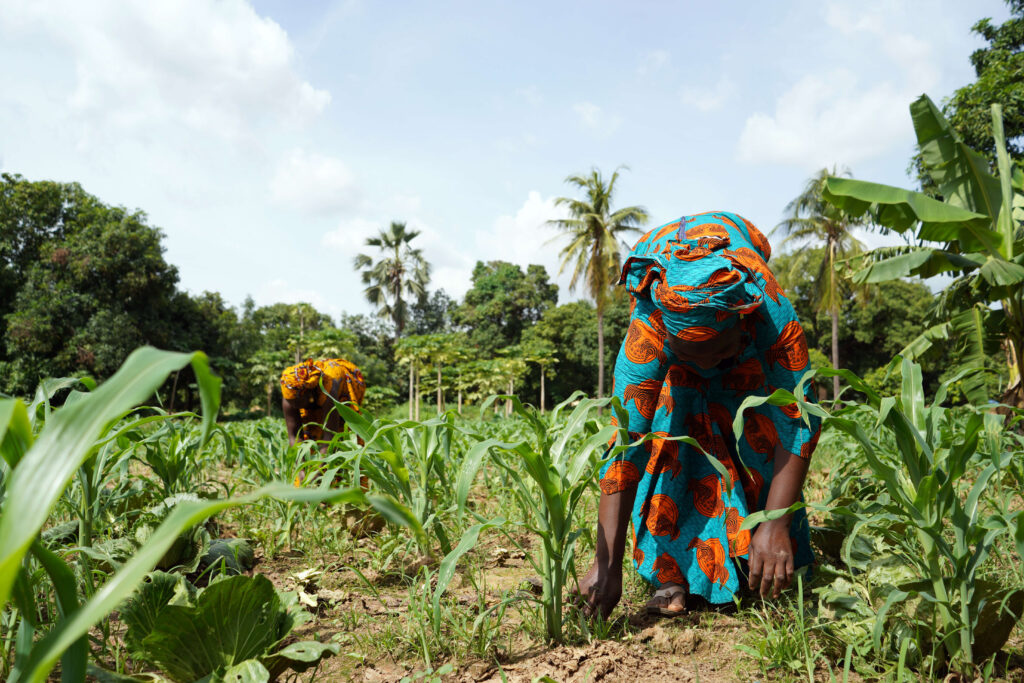
Prior to the onset of COVID-19, very few of us would have foreseen a pandemic spreading so rapidly across the world, forcing governments to take actions like lockdowns and border closures. We have observed how these events found many essential services unprepared and resulted in businesses focusing on “response” and “recovery.” In many countries, the pandemic started as a health crisis, while in Sub-Saharan Africa it started as an economic one, as closures happened quicker than the virus spread.
Despite the fact that many agricultural value chains are considered an essential service, agri-SMEs in Sub-Saharan Africa are still facing a decline in demand (particularly those providing farm inputs), liquidity shortfalls, harvesting and production problems due to labor shortages, export and transportation delays due to lockdowns, and cancelled international contracts. All these challenges are exacerbated by ongoing climate change-related shocks, like droughts, floods and locust plagues. The resilience of agri-SMEs (small and medium-sized businesses that are formal and registered entities engaged in agricultural production) is being tested with these events.
While it is too early to estimate the full economic impact of COVID-19 on agri-SMEs, most lenders are taking steps to address the most pressing challenges faced by these agri-SMEs. Though it is prudent to move quickly to overcome these challenges, agri-SMEs would be better supported in the long run if lenders approach these problems through a systemic lens to understand the root of the challenges instead of focusing only on the symptoms of the overall shock.
Aside from the lack of infrastructure, agri-SMEs’ biggest challenge to growth is their limited access to finance and the regulatory burdens constraining this access. As will be discussed below, these challenges are deeper and more structurally embedded, and therefore require a long-term coordinated commitment to provide agri-SMEs access to capital.
This post highlights steps lenders are currently taking to help agri-SMEs weather the storm and suggests areas where they can expand their focus to support these businesses in being better prepared for future economic shocks.
Explore new options to mitigate risk and increase capital flow to agri-SMEs
Since the outbreak of the pandemic, most lenders have focused on serving existing clients by increasing their financing, restructuring loans, or deferring payments to meet their clients’ liquidity challenges. By doing so, lenders are also making sure their current portfolio is not at immediate risk.
It’s essential that lenders offer non-traditional options to mitigate risks and increase the flow of capital to agri-SMEs.
While lenders may be tempted to take a more conservative stance, those with sufficient capacity should be initiating even more new deals in order for agri-SMEs to keep goods and services flowing through the highly interdependent agricultural value chain. For instance, 72% of MSEs in Zambia need working capital to continue and grow their business, and 61% are running on their savings. COVID-19 is exacerbating the financing gap, and it’s essential that lenders offer non-traditional options to mitigate risks and increase the flow of capital to agri-SMEs.
Luckily, lenders have successful examples which they can use to build new and more innovative risk mitigation options. Credit guarantees, such as non-bank financial instruments that mitigate default risk for lenders in Sub-Saharan Africa, are a known practice. Between 2008 and 2015, AGRA worked with several partners to offer several guarantees to extend credit to many agriculture value chain actors in Africa, demonstrating the bankability and feasibility of investing in perceived risky agricultural businesses. Additionally, Aceli Africa has developed a new market platform that aims to incentivize financial service providers to lend to agri-SMEs while also providing technical assistance to them.
Create new strategies to find and support agri-SMEs
Many agricultural lenders are reporting that servicing new clients has either stopped or dropped to low levels, not just because of risk concerns, but also because it is almost impossible to conduct thorough due diligence without on-site visits. Given that on-site visits may not be feasible in the near-future, lenders will want to design creative strategies and leverage data to support remote discovery of new agri-SMEs.
Promising agri-SMEs will become more visible to lenders by providing a common set of standard bankability metrics.
To this end, in early 2020, MIX and SCOPEinsight formed a partnership with the support of AGRA to help address the financing gap agri-SMEs face. Through this partnership, they are building bankability metrics so that agricultural lenders can identify and pre-screen agri-SMEs. These metrics play an even more important role now due to COVID-19 disruptions, and they will feed into a portal which will bridge the information gap between agri-SMEs and lenders. As a result, promising agri-SMEs will become more visible to lenders by providing a common set of standard bankability metrics that lenders can use to reduce their costs to serve SMEs. By employing bankability metrics, lenders will be able to assess the potential for growth of agri-SMEs, which currently handle 680 million tons of food in Africa.
Offer appropriate technical assistance to agri-SMEs
The key to this kind of support is that it offers business development assistance that is based on a high knowledge of the value chains and challenges.
Several of the lenders we spoke with are increasingly providing technical assistance to agri-SMEs, recognizing that in these extraordinary times, agri-SMEs are looking for direction. Lenders are offering guidance and training on financial management, crisis management, and operating a business with limited resources. After conducting a survey on COVID-19’s impact on 134 of its clients, Root Capital decided to offer virtual technical support through its advisory team in four areas: crisis management, emergency operations, financial management and analysis, and digital data collection and analysis.
While technical assistance is not new and is already being offered to SMEs by many organizations, the key to this kind of support is that it offers business development assistance that is based on a high knowledge of the value chains and challenges, with the main goal to support agri-SMEs to grow and become bankable organizations. Helping agri-SMEs become more bankable, and thus more professionalized and visible to other lenders, can assist them to overcome barriers to financing and become more resilient and better equipped to face future risks and shocks.
Going forward, the uncertainty of this pandemic makes it unclear how the next season or harvest will affect agri-SMEs, who are highly interdependent actors in an agricultural value chain where one simple disruption in the flow of goods and services creates challenges for other actors. Along with prioritizing their existing clients, as they are currently doing, lenders could consider the crisis an opportunity to employ long-term strategies that can help agri-SMEs grow into resilient institutions. Coordinated responses and actions by lenders and other actors will play a critical role in ensuring that these businesses are strong enough to continue to feed the world in the face of new pandemics and other global challenges to come.










